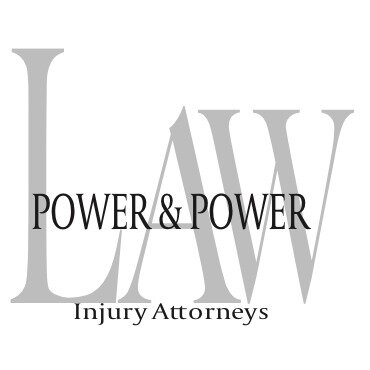Best Toxic Mold Lawyers in Anchorage
Share your needs with us, get contacted by law firms.
Free. Takes 2 min.
List of the best lawyers in Anchorage, United States
About Toxic Mold Law in Anchorage, United States:
Toxic mold, also known as black mold, can pose serious health risks to individuals living in buildings where it is present. In Anchorage, United States, laws protect tenants and homeowners from exposure to toxic mold and hold property owners responsible for remediation efforts.
Why You May Need a Lawyer:
You may need a lawyer if you have been exposed to toxic mold in your home or rental property and are experiencing health-related issues. A lawyer can help you navigate the legal process of holding the property owner accountable for mold remediation and any damages incurred as a result of the exposure.
Local Laws Overview:
In Anchorage, United States, landlords are required to maintain rental properties in a habitable condition, which includes addressing any issues related to toxic mold. Tenants have the right to request mold remediation from their landlords, and if the issue is not resolved, they may seek legal action. Property owners can be held liable for damages resulting from toxic mold exposure.
Frequently Asked Questions:
1. What are the health risks associated with toxic mold exposure?
Exposure to toxic mold can cause respiratory issues, allergic reactions, headaches, and other health problems.
2. How can I determine if there is toxic mold in my home?
You can hire a certified mold inspector to conduct a mold assessment in your home.
3. Can I withhold rent if my landlord fails to address a toxic mold issue?
Under certain circumstances, tenants may be able to withhold rent until the mold issue is resolved.
4. How long do I have to take legal action against my landlord for toxic mold exposure?
The statute of limitations for filing a lawsuit varies, so it is best to consult with a lawyer as soon as possible.
5. What evidence do I need to prove toxic mold exposure in court?
You will need documentation of the mold problem, any related health issues, and efforts to notify your landlord of the issue.
6. What are my rights as a tenant regarding toxic mold in my rental property?
Tenants have the right to live in a safe and habitable environment, which includes being free from toxic mold exposure.
7. Can I sue my landlord for damages if I have been exposed to toxic mold?
Yes, you may be able to seek damages for medical expenses, property damage, and other losses resulting from toxic mold exposure.
8. What should I do if I suspect there is toxic mold in my home?
Contact your landlord immediately and request a mold inspection. If the issue is not resolved, consider seeking legal advice.
9. How can I prevent toxic mold growth in my home?
Keep your home dry and well-ventilated, promptly repair any water leaks, and clean up any mold growth immediately.
10. How much will it cost to hire a lawyer for a toxic mold case?
Legal fees for toxic mold cases can vary depending on the complexity of the case and the lawyer's hourly rate. Some lawyers may offer a free initial consultation to discuss your case.
Additional Resources:
- Environmental Protection Agency (EPA) - Mold Information: https://www.epa.gov/mold
- Alaska Legal Services Corporation - Tenant Rights: https://www.alsc-law.org/get-help/tenant-rights/
Next Steps:
If you believe you have been exposed to toxic mold and need legal assistance, contact a local attorney who specializes in toxic mold cases. They can help you understand your rights, gather evidence, and pursue a legal claim against the responsible party.
Lawzana helps you find the best lawyers and law firms in Anchorage through a curated and pre-screened list of qualified legal professionals. Our platform offers rankings and detailed profiles of attorneys and law firms, allowing you to compare based on practice areas, including Toxic Mold, experience, and client feedback.
Each profile includes a description of the firm's areas of practice, client reviews, team members and partners, year of establishment, spoken languages, office locations, contact information, social media presence, and any published articles or resources. Most firms on our platform speak English and are experienced in both local and international legal matters.
Get a quote from top-rated law firms in Anchorage, United States — quickly, securely, and without unnecessary hassle.
Disclaimer:
The information provided on this page is for general informational purposes only and does not constitute legal advice. While we strive to ensure the accuracy and relevance of the content, legal information may change over time, and interpretations of the law can vary. You should always consult with a qualified legal professional for advice specific to your situation.
We disclaim all liability for actions taken or not taken based on the content of this page. If you believe any information is incorrect or outdated, please contact us, and we will review and update it where appropriate.














